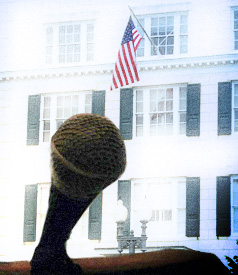Support justice-driven, accurate and transparent news — make a quick donation to Truthout today!
Obama’s summit sets a precedent.
The summit at Blair House didn’t get stellar reviews: bloggers found it boring, and the participants left with mostly the same views they held on arrival. Democrats intended the meeting to be a final gesture of bipartisanship — a recognition that the public yearned to see politicians working together — before using their majority to ram home the health-care bill. Republicans saw it as a chance to spread their talking point that it’s time to “start over” and go “step by step.” Real deal-cutting will continue to take place, as always, behind closed doors.
But a funny thing happened on the way back to the usual bickering. The wonky cable conclave became one of the most important events of the year-old Obama presidency — and for reasons beyond its potential to advance landmark legislation. The leaders didn’t actually accomplish anything, but they inadvertently created a new democratic institution. The face-off set a teleprompter-free precedent that will be tough for future presidents or members of Congress to break. Now the skills required to chair a bipartisan gathering, master complex policy details, and adeptly summarize relevant arguments will be added to those of anyone seeking the presidency. Being quick and cogent in response will be part of any calculation of who should be House speaker or majority or minority leader. Having experienced one of these summits, the press and public will demand more. So savor the good news for the future: smarter presidents, smarter leaders on both sides of the aisle.
Too Pollyannaish? Not if you take the long view. We imagine that traditions of democracy are permanent; they aren’t. In the early republic, congressmen did most politicking in the Washington boardinghouses where they lived without their families. In the century between Jefferson and Wilson, presidents delivered State of the Union Messages in writing, not in person. Until FDR, most presidents insisted press questions be submitted beforehand, not asked orally.
Some Washington institutions change for the worse. Evan Bayh’s retirement led forelock-tuggers to nod sagely that the Senate is broken. And it’s true that many capital rituals have become little more than fodder for the latest hypocrisy. Some of the same Republicans who pushed through President Bush’s trillion-dollar tax cuts in 2001 via reconciliation (51 votes) now scream about Democrats using the procedure for health care. Some of the same Democrats who used the 60-vote rule to block the schemes of Newt -Gingrich now describe the requirement for super — majorities as a threat to the nation.
The filibuster is only the most publicized of obsolete traditions. Old -courtesies — “My distinguished -colleague” — soften the edges of partisanship and should be kept. But floor “debate” isn’t worthy of the name; it just lets politicians hear the sound of their own voices in an empty chamber.
Now, when Congress seems hopelessly out of date, we’ve adapted a fresh approach from abroad. After C-Span began airing the British Parliament’s Question Time, many people asked why we couldn’t do something similar here. To his credit, John McCain proposed just that in 2008. Obama wouldn’t embrace it publicly, but he liked the idea of mixing it up with Republicans, and in the early days of his presidency he met with the House GOP caucus. When Obama learned that Minority Leader John Boehner had instructed members to vote against the stimulus bill before the president showed up, Obama felt played. Instead of fulfilling his campaign promise to negotiate health care in front of the cameras, he handed it to surrogates, who cut backroom deals. But after the Massachusetts fiasco, Obama adapted Question Time for his own purposes. He routed Republican lawmakers at a televised retreat in January, a success that convinced him he could make a public summit on health care work.
The reason the Blair House summit will likely be repeated (on terrorism, perhaps, or jobs) is that, this time, the GOP looked good, too. The win-win event gave the party a chance to move beyond obstruction and showcase some of its lesser-known leaders. Even when they and others assaulted the truth, there was time for the record to be set straight. The tone remained civil.
So when the Republican presidential campaign gets going in 2011, expect Mitt Romney, Tim Pawlenty, Sarah Palin & Co. to squabble over who would best handle congressional leaders in bipartisan summits. And expect Obama backers to point to his performances as proof that their man can already do the job.
Jonathan Alter is an award-winning columnist, television analyst and author.
(c) 2010, Newsweek Inc. All rights reserved.
A terrifying moment. We appeal for your support.
In the last weeks, we have witnessed an authoritarian assault on communities in Minnesota and across the nation.
The need for truthful, grassroots reporting is urgent at this cataclysmic historical moment. Yet, Trump-aligned billionaires and other allies have taken over many legacy media outlets — the culmination of a decades-long campaign to place control of the narrative into the hands of the political right.
We refuse to let Trump’s blatant propaganda machine go unchecked. Untethered to corporate ownership or advertisers, Truthout remains fearless in our reporting and our determination to use journalism as a tool for justice.
But we need your help just to fund our basic expenses. Over 80 percent of Truthout’s funding comes from small individual donations from our community of readers, and over a third of our total budget is supported by recurring monthly donors.
Truthout’s fundraiser ended last night, and we fell just short of our goal. But your support still matters immensely. Whether you can make a small monthly donation or a larger one-time gift, Truthout only works with your help.
